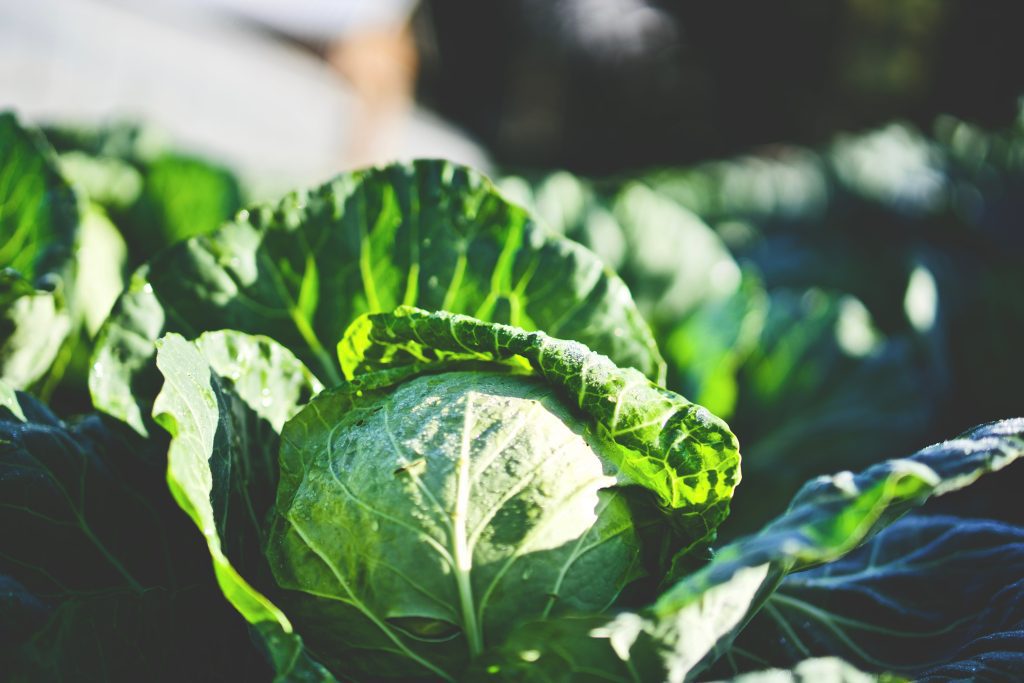Cabbage isn’t the most naturally beautiful vegetable, but it’s packed with nutrients that will help you feel powerful. The leaves could be silky or creased, and the plant’s color ranges from green to red to purple. Despite its resemblance to lettuce, cabbage is a member of the Brassica family of vegetables. Other members of this family include broccoli, radishes, and Brussels sprouts. In this article, let’s explore the remarkable health benefits of cabbage and what it does to our bodies when we consume them.
Cabbage’s health benefits are numerous, including its ability to strengthen the immune system and aid in digestion, so it should be a regular part of your meals. Raw or stir-fried is best. You can get it fermented in foods that are good for your gut, like sauerkraut and kimchi, or you can just chop it up and throw it into some coleslaw.
What are the health benefits of eating cabbage?
Cabbage is high in nutrients
About a third of the vitamin C you require daily can be found in just a half cup of cooked cabbage. In addition to that, it is an excellent source of dietary fiber, folate, potassium, magnesium, and vitamins A and K. Furthermore, cabbage is rich in antioxidants like polyphenols and sulfur compounds, and it has a high fiber content.
Fortifies you
Vitamin C is abundant in cabbage. Ascorbic acid, or vitamin C, serves many purposes in the body. It aids in collagen production and improves immunity. It also aids in the digestion of plant-based iron sources.
Awesome Fiber Content!
Cabbage is a simple way to boost your daily fiber intake. You can get almost 5 grams of fiber from just 2 cups of raw cabbage. For older kids and teens as well as adults, the daily recommended intake is between 21 and 38 grams.
Treatment of Cancer
Apigenin, which is a chemical that can be found in cabbage, parsley, and celery, was the subject of a study that was carried out at the University of Missouri. The study found that apigenin was able to reduce the size of tumors that were implanted in mice that had an aggressive form of breast cancer. Their results suggest, say the researchers, that apigenin could one day be used as a safe treatment for cancer.
Regulate your digestive system

This crisp vegetable is loaded with insoluble fiber, a form of carbohydrate that cannot be digested in the intestines and thus is necessary for better digestion. Since it increases the volume of stool and encourages regular bowel movements, insoluble fiber is beneficial to digestive health. Cabbage is an excellent choice because of the high fiber content it provides for better digestive health.
Combats inflammation
Anthocyanins are powerful antioxidants found naturally in cabbage. The pigments known as anthocyanins are responsible for the vibrant hues of many fruits (most notably blueberries) and vegetables. Inflammation (swelling) that lasts for a long time is called chronic inflammation, and it has been linked to numerous diseases and disorders, including cardiovascular disease, cancer, and rheumatoid arthritis.
Improves cardiac health
It appears that cabbage, particularly red cabbage, increases levels of the heart-protective antioxidants beta-carotene and lutein, as well as other antioxidants. As an added benefit, it aids in reducing “oxidized” LDL, a form of bad cholesterol associated with atherosclerosis. And because it reduces inflammation, it also protects against heart disease.
Help Improve Bone Health

Just one cup of raw cabbage contains approximately 68 micrograms of vitamin K. While vitamin K deficiency is unusual in the general population, those with certain diseases or conditions, such as cystic fibrosis, celiac disease, or ulcerative colitis, may be at a higher risk. Too little vitamin can damage bones, increase the risk of osteoporosis, and cause bleeding in rare cases.
It’s Healthy Raw
Raw red cabbage, in particular, may provide the greatest nutrient boost per serving, even though different nutrients are obtained depending on whether the cabbage is cooked or fermented. Thinly slicing it and letting it sit for around 10 minutes will help to bring out the most nuanced flavors. After that, you can put it on salads or sandwiches, or you can make it into coleslaw.
Final Thoughts
Get psyched to increase your intake of cabbage! Be careful about going too far, though. Cabbage has many health benefits, but you need to gradually increase your intake so that your body can process it. Do not boil or subject food to lengthy cooking times. Because they might end up causing the food’s nutrients to be lost. Instead, you should stick to cooking methods that don’t take as much time, such as stir-frying or chopping the vegetable and eating it raw in a salad or slaw. If you are experiencing symptoms or have any concerns, it is important to consult a healthcare professional.
Did you find this helpful? Let us know in the comments below.
You can also check out our Facebook & YouTube pages for more Important Roles of Plants In Our Life.
You might also like:








